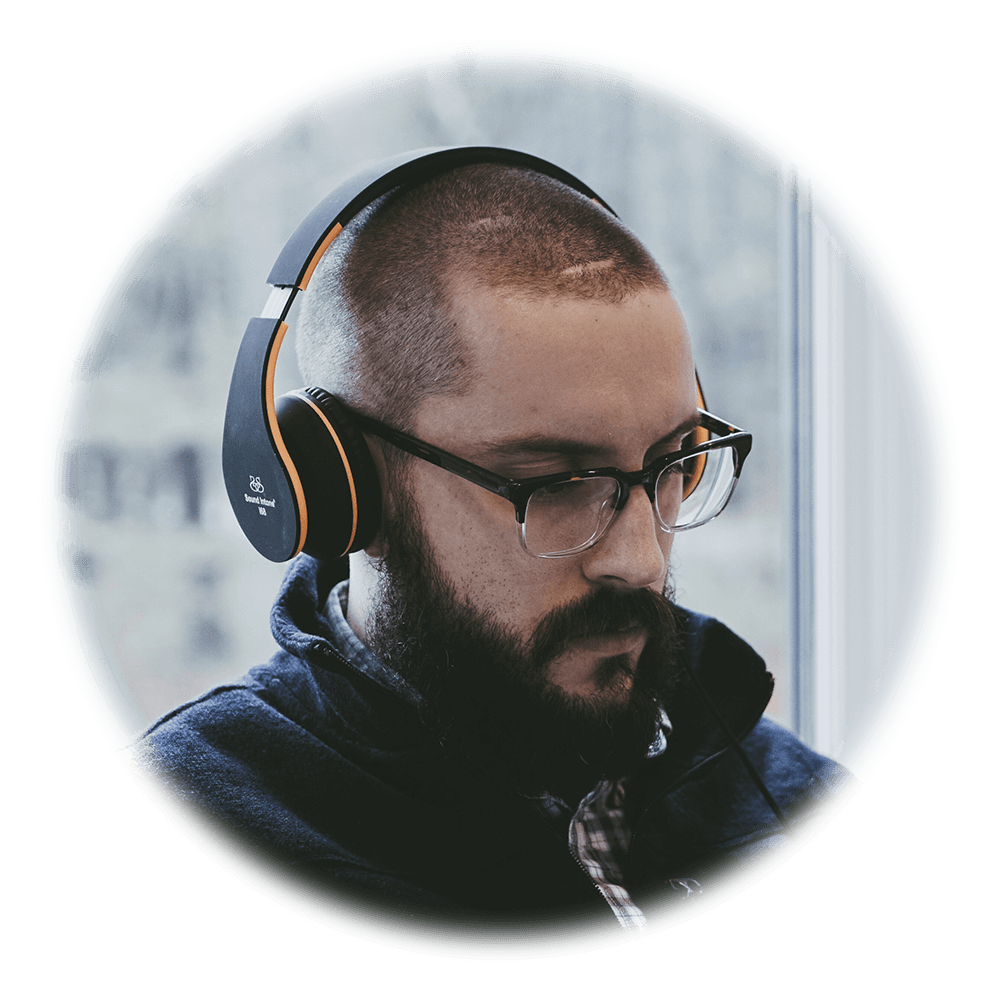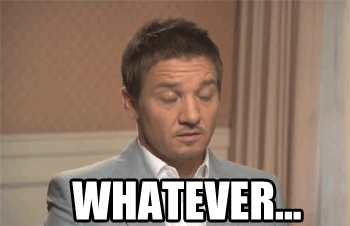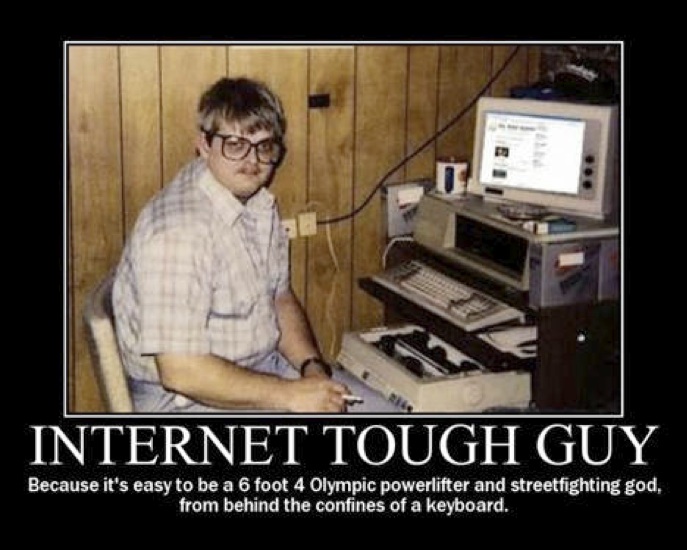The Internet is a black hole of negativity.
Today I saw this: http://www.buzzfeed.com/maycie/this-guy-travelled-the-country-in-a-pink-tutu-just-to-make-h
Then I read the comment section…
What can I say? No matter what you do, if you put it online someone is going to say you are wrong, inexperienced, stupid, ugly and smell bad.
There ain’t no way ’round it, don’t matter who you think you is.
As a writer (or any person who comes up with original ideas) this dark presence of negative backlash lurking in the shadows of the Interwebs can keep you from your own greatness if you let it. It can paralyze you. It can make you write something you don’t want to just because you think it is “perfect” and won’t receive any hateful comments from armchair critics. It can ruin your art. It can ruin your creativity. It can destroy your chance at success.
It you let it…
The key is to learn how to deal with negativity and arm yourself with tools to fight back.
I have a few distinct advantages over most newbie authors venturing out into the world of self-publishing that I want to address here before I share my methods for dealing with the negative feedback you are bound to receive:
#1 – I have PTSD
When I read a negative comment or review, my brain goes haywire. I will skip the details, but I just want you to know that if I can overcome online negativity and continue to put my work out there… so can you!
My advantage is that I know my reactions to negativity aren’t “normal” and can step back and take a breath before doing anything crazy. It something that has to be learned, you can do it too.
#2 – I have been doing this for 4+ years
I have been making my full-time living online (in some form or another) for at least 4 years (it may be longer, I would have to count). This isn’t my first rodeo. I have had full fledged hate campaigns aimed at me before. I have received death threats. When I give you these tips, they are from experience. More importantly, when you receive your first (and your second and your third and all the rest) bit of negative feedback, just remember that little old Mike Shreeve is still trucking along and if he can do it, then so can you!
Here are my top 3 tips for dealing with negative feedback and destroying Internet trolls with creativity:
#1 Do Something
The brain is a fascinating bit of machinery.
It can cause your body to act without your conscious knowledge (think: breathing, hearbeat, etc.). Frighteningly, it can also cause you to react whether you want to or not.
For example, if you are on the streets (like the thug I know you are) and you are approached by a man with a knife, your brain will cause your body to react without you really being consciously aware of it.
Your shoulders might tense, your fists might tighten, your body might start pumping adrenaline into your arms and legs etc.
You might fight, flee or stand still. Either way, your brain is programmed to do something when it feels or senses a threat. On the streets, it is easy to allow your brain to run its course to keep you safe because you can typically see the threat. It makes sense to punch a man trying to harm you. It makes sense to run away from danger.
It doesn’t make sense to punch your computer when someone calls you a racial slur online and says your book sucks.
And this is why Internet negativity is hard to deal with. Technology is new. It is a new thing for jerks to be able to hide behind a computer and type whatever they want into a Youtube comment without getting their faces rearranged.
Our brain reads a negative review of our work and responds to it like an act of physical harm. Our body is pumped with adrenaline, we might quickly turn off the computer and hide in our room (flight response), we might quit working for the rest of the day (freeze response) or we might rebuttal the negativity with some negativity of our own (fight response).
But this is bad. Bad for our careers, bad for our writing, and bad for our health.
What is a poor writer to do?
The key lies in understanding what your body needs to feel that the threat has been dealt with properly. This is a trick that I have learned from years of working on my own PTSD and in talking with others who have experienced the same problems.
For me, writing about the negative feedback helps a lot.
If someone leaves a trolling comment on an article I shared (like today) I will try and write something helpful to someone else regarding the topics addressed (like this post I am writing for you). I might write something further defending my stance or offering advice (often to myself). In other words, I turn that negative energy that could kill my creativity and use my creativity to kill that negative energy.
Here is another example to help you understand:
Two weeks ago I commented on a writing forum that I thought deep success in the new self-publishing game came from following the IM product launch model. Of course I was barraged with comments from “artistic” writers and traditional purists who thought I was inexperienced, dumb and didn’t know what I was talking about.
I could have shown them screenshots of my monthly earnings from the work I have been doing under various pen names.
I could have shown them my tax returns from last year that might suggest I know a little bit about making money online.
But what would that have accomplished?
If anything, it would have damaged me further. It would have cheapened what success I have worked hard for.
Instead, I have begun working on laying out a series of blog posts, teaching those who want to listen, exactly how I have been using the product launch sequence to get my Kindle books flying out of the gates. I turned that negative energy into creativity.
Try doing this yourself next time you get negative feedback or a bad review.
Turn that energy into more work.
If you want to write a story where people who leave bad reviews on Goodreads start mysteriously disappearing – I will be the first to stand in line to read it!
Whatever you have to DO to address your body’s biological reaction to the negativity – do it!
[ois skin=”In Post Subscription”]
#2 Re-Energize
When I was 15 I started working in kitchens full-time. The only time I stopped was to work as a wildland firefighter in Alaska for a summer (best summer of my life), to try out logging for a few months in the middle of winter (worst winter of my life) and live in the Philippines for two years (wish I could go back). My time in kitchens taught me what real hard work was.
When I made sous chef I only worked. In the kitchen by 7am, out by 1am, 6 days a week. No holiday breaks, no weekends.
When someone told me I should try making a living by writing I thought it would be the easiest job in the world. I thought only of the physical action of typing – I had no idea how exhausting it creativity and originality could be.
As I am typing this sentence my eyes are struggling to stay open. I have already written 4,765 words today and have to get another 1,000 done.
I am not telling you all this to flatter myself – quite the opposite. This is a confessional.
Writing is hard work. Harder than any other kind of work I have ever experienced.
It is emotionally, intellectually and socially draining. Locking yourself in a room, staring at a blank screen and feeling the pressure of filling that screen up with combinations of letters in ways that you can charge people money for them is draining.
Why do you think so many writers are drunks? Same reason drug and alcohol abuse is so prevalent in the restaurant industry – getting through the day is tough in these fields, turning to artificial substances seems like a good idea (it isn’t of course, and if you think to contrary than you need to hear Stephen King talk about his struggle with alcoholism or read the letter that Hemingway’s son wrote him before he killed himself).
Instead, the key is learning how to re-energize yourself.
Every time you write something honestly, you are giving a part of yourself away. You create a hole that needs to be filled.
Here are some things that I do to re-energize:
- Go running
- Cook something new for my wife and son
- Go get some coffee with another writer friend
- Skype chat with other writers and blow steam
- Read a good book (probably my second favorite)
- Hang out with my wife and son (my first favorite)
I try and do all of these things at least once a week, if not everyday. When I do, my writing is better. When I do, I care less about the negativity that permeates almost everything that exists online.
What things did you do today to re-energize? What are you planning on doing tomorrow? If you can’t answer those questions, then you have work to do.
#3 Recognize Behavior Profiles
The best part about the self-publishing revolution is that it has allowed authors to gather like minded readers together into “communities” and then to feed their families by supplying these “communities” with stories.
Are you a Lovecraftian obsessive? Cool, I know a few authors you should check out.
Do you swoon for Sci-fi romance with strong willed female leads? Great, I have the perfect recommendation.
Are you craving honest research and non-partisan political commentary? Great, I know a non-fiction author you should check out.
The point is, that as an author-publisher it is your responsibility to recruit, train and keep your “community” safe and intact.
This means weeding out the “others”.
It sounds dystopian because it is. But this is what works.
Pepsi doesn’t want Coke lovers to buy their product. McDonalds doesn’t want fine dining lovers to eat at their restaurants. Gordon Ramsey didn’t get famous because he let everyone IN he got famous because he kicked people OUT! (Am I hungry or what?)
In a future post I will go over how to create a “community” and why your focus should be on keeping people out instead of trying to get people in, but for now just realize that this tactic is not only good for business but it is the #1 way to deal with negativity.
By learning the behavior profiles of trolls and recognizing them for who they truly are and what their presence truly means for your business and your art, you can blow past these idiots without even feeling the bump under your tires.
Trolls
Sadly, the world is full of 13 year olds who have just discovered what Fuck and Shit mean and think that calling people female body parts makes them look mature. These are the same nincompoops who leave reviews that add absolutely nothing to overall value of the universe. Complete reviews that read:
“This book sucked.”
or
“If you really are a writer, you should be able to come up with something better than this.”
or
“I am so tired of these types of books.”
The key to keeping trolls out of your inner circle and away from your books is to simply keep making art.
These fools have short attention spans. They want to get into a online debate so they can tell their friends how clever they were and how they “owned” you in the Youtube comment section of a video titled “Honey Boo Boo Makes Ketchup Chips and Peas with Mayo”.
Ignore their comments for a minimum of 20 minutes and they have already forgotten about you. Keep plugging away at what you do and they will ebb and flow with the tides.
Mr. And Misses Smarty Pants
No matter how we might try, we can never truly escape academia with her too-tight pants and over enunciated vocabulary.
“The themes of this title were underdeveloped. When I taught English as an adjunct professer in blah, blah, blah, blah”
or
“I have read over 150 sci-fi titles and I blah, blah, blah, blah”
To be honest, I leave reviews like this sometimes. I can’t help it – I get off on sharing my knowledge with people.
But there is a danger when reading these reviews…
They aren’t actually about your work. These aren’t critiques of your book, they are soapboxes for idiots who think people are dying to know what they think.
If you want to read into these and “use” them to make your work better, go ahead, but I don’t. I have my critique group of fellow writers and they are the only ones I listen to that can change the way I write because I know their feedback is genuine and it is about my work, not their ego.
If you ever see that I have left a review on something you wrote, just ignore it for the B.S. it truly is then send me a letter with your fist in it and I will punch myself in the face so you can feel better.
Your Competitors
These are the ones you really have to watch out for. Their opinions could really hurt you. They have vested interest in trying to dethrone you. So, what should you look out for from your competition?
Nothing.
The reality is that people who spend time leaving negative reviews on your work aren’t actually your competitors. They aren’t even running the same race as you are.
The only competition you have are people who are spending their time writing more books – not the idiots spending their time leaving bad comments.
If you see a fellow author trolling your books, let out a big sigh of relief as you realize this idiot just took himself out of the race and let you run right past him (or her).
Stay Positive And Stay Hungry
This is a tough business.
It can be hard to put yourself out there.
In a world where the traditional gatekeepers of one or two editors has been replaced by a world of thousands of gatekeepers (readers armed with Amazon’s review program) you have to learn the skills necessary for survival.
You can do this. Connect with other authors (like me) who can help you to stay positive.
And above all…
Keep writing. The world needs your creativity and insight.




